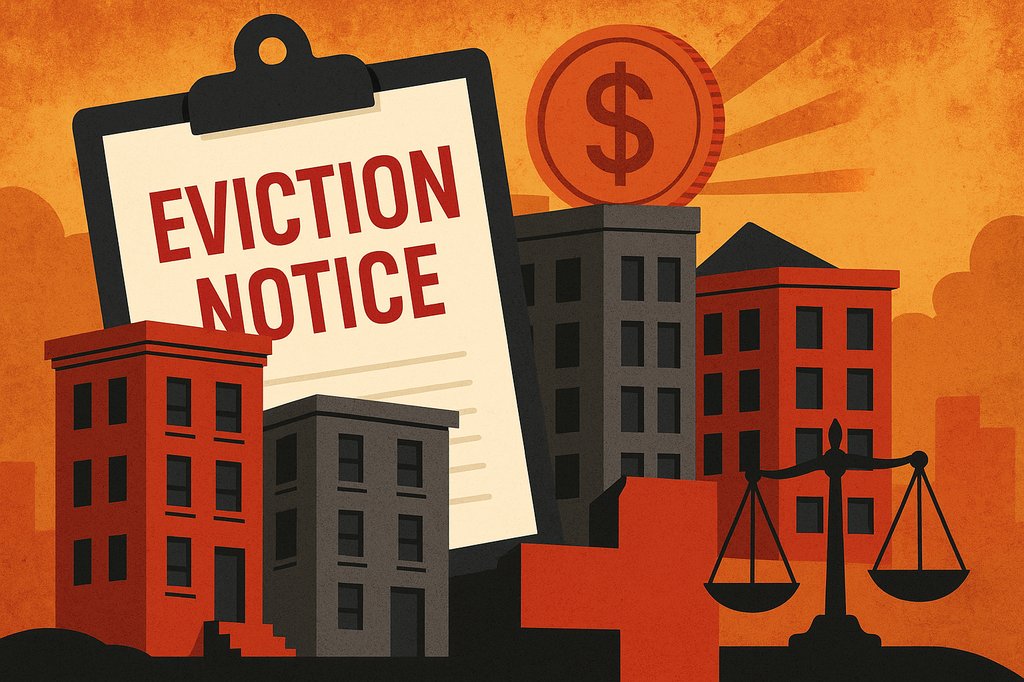Don’t Let a Disaster Burn You Out
By Eric Paulos
Between November 13 and November 19, three large Southern California wildfires burnt over 40,000 acres, destroyed nearly 1,100 structures including ten apartment buildings, and caused the evacuation of 50,000 people. The fires were fueled by hot weather and high wind conditions.
Imagine if you were listening to the news about these wildfires and owned a building near one of the danger zones. Convincing yourself that your building is out of harm’s way, you retire to sleep but are awakened in the middle of the night by a phone call, your first red flag. A tenant informs you that they were forced to evacuate the building due to the approaching fire. After several more phone calls from displaced tenants, you get in your car to try to drive to the property, but the area has been closed off. Frustrated, you listen to news reports on the radio and then tune in to the network news, hearing about the sweeping fire damage in your building’s location after the winds switched directions. You make a call to the fire department that confirms your worst fears. You are living your worst case scenario. Your apartment building has been completely gutted by fire. Your tenants have scattered and there’s no way your property will be rebuilt anytime soon.
By now, most of your tenants have now called you from their cell phones, asking where they are going to stay and ask if you are going to help them. Your first response is to tell them that you will talk to them after you talk to your insurance agent in the morning. You wonder if you have done the right thing, bought the right coverage. It is going to be a long night.
Insurance Program Must Cover Worst Case
What do you do, besides panic? For most of the readers, this fortunately isn’t reality. Not yet, anyway. It is a hypothetical situation. But imagine if it did occur. Would your insurance program cover the revenues you would lose? Would it help you pay your bills in the absence of your usual revenue stream? Would it reimburse you for the expenses you incur in getting your building back up to speed? Is there enough coverage to rebuild the building from scratch? Does your policy include coverage for tenant’s personal property and living expenses? What if your leases, files and other information goes up in smoke with the rest of the building? The recent Montecito Tea Fire, Sayre Fire and Triangle Freeway Complex Fires illustrate for at least ten owners, what you can experience. This is a great time to make a resolution to make your game plan.
Design a Disaster Recovery Plan for your Building
Make duplicate records of computerized and written documents, including leases, rental and security deposit records, payment reports, and contact information for the tenants and managers. Keep your most valuable papers like original lease agreements in a fireproof safe, off the actual premises.
Plan ahead for the worst case scenario.
1. Do research before a disaster strikes …on materials suppliers, contractors, alternate facilities, public insurance adjuster, and have your records easily accessible when disaster strikes.
2. Conduct a risk analysis of your company and its operations.
No two apartment buildings are the same, even two that are on the same block. You have your own building, your own tenant clientele, your own equipment, your own managers. You need an expert to assess your company and the specific risks it faces — and put together a comprehensive insurance plan to protect you. An apartment insurance specialist knows best the unique coverage needs for your buildings.
As an apartment owner, you want as many options as there are available for your insurance program. You should be aware that a one-company agent is an employee of an insurance company. Because their paycheck is tied to just one company, you may not always receive the best terms and conditions that are available. You want someone who will work for you and who has access to a variety of insurance companies and programs. You want someone who can compare price and coverage options to obtain the most comprehensive coverage for you, possibly with several insurers that will each provide a piece of your program. Don’t trust the financial protection of your business to an insurance agent who is not a specialist with apartment and multifamily building owners. Insurance is a huge industry. There’s insurance for everything. (You want alien abduction insurance? You can buy it.) Nobody can specialize in all of it.
3. Consider a Group Renters Insurance policy
Most insurance policies written on apartment buildings have no coverage to provide for tenants’ temporary living expenses or personal property that is damaged or destroyed. Although renters insurance covers such items, it is often overlooked by tenants. Plans that cost as little as $10.00/month are available on a group basis that provide additional living expense, personal property coverage and liability (which comes in handy for landlords if the tenant causes property damage to the property).
Many tenants are completely in the dark about insurance and may discover only after facing a disaster that there is no available financial assistance to them from your insurance policy. As a landlord, you can avoid a lot of trouble and help better retain tenants if you take the initiative on encouraging tenants to purchase renters insurance. Group renters programs allow for lower rates and makes coverage much easier to purchase.
4. Buy Enough Building Insurance
Most owners do not bother to review their building coverage. It is possible for an owner to go ten or more years without increasing the amount of protection, with inflation eroding the coverage away. Although many policies include an automatic increase for inflation, that might not be enough. Remember that your true cost to rebuild depends on many factors, and following a widespread fire, costs of materials and labor can rise significantly. This is because after a widespread disaster, there is increased demand and scarcity. Demand surge can render you into temporary underinsurance even if you have enough building coverage under normal circumstances. This is why your building replacement cost should be re-evaluated on an annual basis.
5. Don’t Overlook Business Income
Many companies automatically include one year actual loss coverage for your insured building’s business income. Human nature tends to cause most owners to minimize the anticipated downtime of a building. With waiting periods on permits, inspection considerations and the many other things that extend the closing time of your building, your fixed operating costs and loan payments might defiantly march right past the one year coverage term that your policy provides, if the claim is severe enough. Policies can differ also in the way that they handle your loss of business income. With some companies, their policies stop paying the minute that the property is repaired. Unless you are one of the fortunate few with a ready-made waiting list of willing tenants ready to move in the second that your certificate of occupancy is granted, you will lose income until the cash flow finally once again reaches the pre-claim level when your units are all occupied. What if you do not want to be limited to one year only of income coverage or if you want some assistance while the building is being filled up? What if you incur extra expenses so you can complete the restoration process as soon as possible? These are all questions you will need to ponder and discuss with your independent insurance agent.
Eric Paulos is a Certified Insurance Counselor, apartment owner advocate, licensed California insurance agent, author and speaker. His agency caters insurance and risk management services exclusively for the apartment owner community. Contact phone: 800-974-6787 Fax: 800-959-9603, Email: eric@apartmentins.com. Visit www.apartmentins.com for 24 hour/7 day a week online quotes, free articles and reports. Apartment Management readers receive a free subscription to monthly emailed tips & bulletins.








